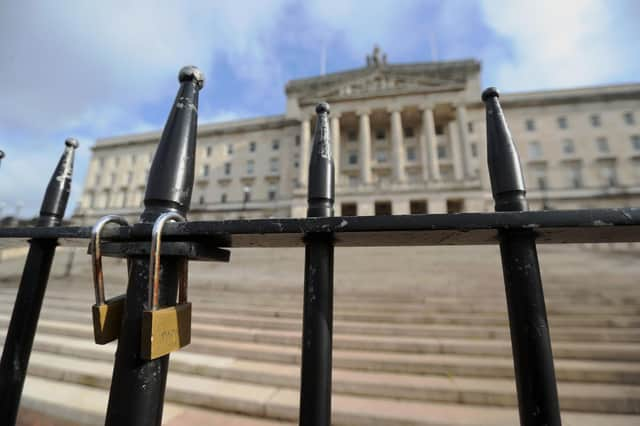Letter: Unionism is fractured and dysfunctional in the face of a united nationalist and republican political base


Growing up in 1960s Northern Ireland the outbreak of political violence shattered a conservative society structured on religious orders and their beliefs.
Why did we experience protest and disorder?
The narrative post 1960s would allege that the sitting unionist government at Stormont was guilty of discriminating against Roman Catholics in housing and employment. With the Cameron Inquiry into disturbances in Northern Ireland in 1969 and the imploding of unionist unity in the face of demands for reform we witnessed actors representing Irish republican activists using violent extremism to attempt to overthrow the Stormont parliament and bring about an united Ireland.


Advertisement
Hide AdAdvertisement
Hide AdDespite attempts at suppressing the violence the United Kingdom government was forced to suspend Stormont in March 1972.
Much has been said about discrimination in Northern Ireland before the 1960s and its impact on the Roman Catholic community with international opinion led by the Republic of Ireland and the United States governments demanding change from the United Kingdom government.
Did the narrative of the 1960s and 1970s justify a violent Irish republican campaign that led to thousands of deaths and injuries in Northern Ireland. Had democracy failed to address the democratic deficit?
Pre 1960s and 1970s the unionist community were led by the landed gentry and political class. My memories of those days would be that the social issues that impacted both lower middle class and the working class in both communities were no different.
Advertisement
Hide AdAdvertisement
Hide AdSadly when the unionist community were looking to strong leadership from unionist political leaders during the early years of the Troubles they were found to be absent. What we ended up with was decades of communal death and destruction.
Three books I have read would bring a balance to the narrative on whether Northern Ireland was wholly a sectarian state.
1. The Northern Ireland Question: Perspectives on Nationalism/Unionism edited by Patrick Roche and Brian Barton. In this 1991 book Doctor Graham Gudgin questions how extensive and widespread was the alleged discrimination portrayed about Northern Ireland by civil rights activists including the People’s Democracy.
2. The Fermanagh Civil Rights Campaign in its wider context 1969-1974 written by Dermot Maguire. This book illustrates the areas in the west of Northern Ireland where discrimination was practised against the Roman Catholic community in housing and employment.
Advertisement
Hide AdAdvertisement
Hide Ad3. Armed Struggle – The History of the IRA written by Richard English in 2003 and how Irish republicans have used violence to try and bring about a united Ireland since 1916.
Unionism and its leadership have failed to represent their community in the face of a concerted nationalist and Irish republican mobilisation to bring about a united Ireland.
There is a naivety and ignorance amongst the Irish American community who glamorise and romanticise the ongoing Irish republican campaign to overthrow the Stormont parliament.
Hundreds of thousands of the unionist electorate are amongst the 600,000 voters in Northern Ireland who choose not to engage in the democratic electoral processes. They want strong political leaders who come forward with programmes for government to improve their lives. The one fact is that the constitutional position of Northern Ireland in the United Kingdom will not change without the consent of the people.
Advertisement
Hide AdAdvertisement
Hide AdWhy is it we have fractured and dysfunctional unionist parties in Northern Ireland in the face of a united nationalist and republican political base?
It is time these unionist political parties put Northern Ireland first and demonstrate to the world that Northern Ireland is an inclusive society for all its people.
As the Rev Norman Hamilton said recently: It is about people and communities building relationships. We have got to end the segregation that polarises the prospects for future generations.
George Millar, Newtownards